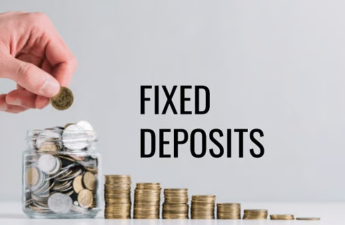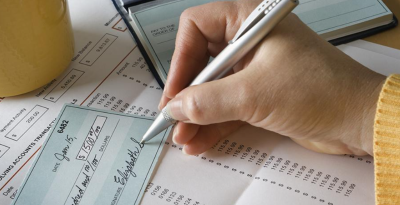On the big stage of today's global economy, the US real estate market has always attracted a lot of attention. One of the worrying questions is: Will the US real estate bubble burst?

On the big stage of today's global economy, the US real estate market has always attracted a lot of attention. One of the worrying questions is: Will the US real estate bubble burst?
To explore this issue, we must first understand what a real estate bubble is. Simply put, a real estate bubble is a situation where real estate prices are far higher than their actual value. This inflated price is driven by excessive speculation and unreasonable expectations, rather than based on real supply and demand and economic fundamentals.
In recent years, the US real estate market has shown some worrying signs. On the one hand, house prices have continued to rise, and the increase has even reached an astonishing level in some areas. On the other hand, the low interest rate environment has reduced the cost of buying a house, stimulating more people to flock to the real estate market, and further pushing up house prices.
However, just seeing rising house prices does not directly assert that there is a bubble. We also need to consider other factors, such as employment and income growth. If people's income can keep up with the growth of house prices, then a certain degree of house price increase is affordable. But the reality is that although the US job market has improved, income growth is relatively slow, which makes many home buyers feel great pressure when facing high house prices.
The commercial real estate in the United States was once in the limelight. However, a series of recent data show that this market is experiencing an unprecedented winter. On July 3, Fortune magazine published an article stating that data released by the well-known rating agency Moody's showed that commercial real estate prices in the United States fell sharply from their highs, evaporating about 250 billion US dollars, equivalent to 1.8 trillion yuan. This money has flowed away and cannot be recovered at all!

The office vacancy rate in American commercial real estate has reached 20.1%. Generally speaking, more than 20% is the warning line, and the current vacancy rate is simply a prelude to the collapse of the sky and the earth.
First, the "new trend" of working from home has overturned the golden body of office buildings. During the epidemic, many companies implemented working from home, and as a result, everyone found that not only did the efficiency not decrease, but it saved a lot of office expenses. Especially for Internet companies, it is enough to meet one day a week, and the rest of the time is working at home. Who is willing to spend a lot of money to rent an office building?
Secondly, the United States has been crazy about water in the past few years, blowing up a huge real estate bubble. The residential bubble is relatively strong, but the commercial real estate bubble burst first. If commercial real estate cannot be sold or rented out, there is only one way to reduce the price. As a result, prices plummeted, and the financial system suffered as well.
Now, we must focus on a bigger concern: Is commercial real estate just a fuse, and will it detonate the entire real estate market again? The current housing bubble in the United States is even bigger than that in 2006. The only difference is that there may not be so many sub-debts this time. But even so, once the real estate market crashes again, it is almost the beginning of a disaster.
The vacancy rate and price declines in commercial real estate have kept investors and bankers awake at night. What's more terrifying is that this is just the tip of the iceberg. What about those families who rely on real estate investment? What about small and medium-sized enterprises that take real estate mortgages?
Let's look at the supply and demand relationship in the real estate market. In some popular cities, the supply of houses is tight, resulting in fierce competition and high housing prices. But can this tight supply situation continue? Can new real estate development projects keep up with the pace of demand? If supply cannot meet demand, housing prices may continue to rise; but if supply suddenly increases and demand cannot keep up, then housing prices may face pressure to adjust.
In addition, financial policies are also an important factor affecting the real estate market. Loose credit policies enable more people to obtain loans to buy houses, but this also increases the risks of the financial system. Once credit policies are tightened, those who rely on high leverage to buy houses may face repayment difficulties, leading to defaults and forced auctions of houses, further depressing housing prices.
Another factor that cannot be ignored is the psychology of investors and market expectations. When most people believe that housing prices will continue to rise, a blind optimism will be formed, driving more funds into the real estate market. But this optimism is often unsustainable. If there is some negative news in the market or the economic situation changes, investors' confidence may collapse in an instant, triggering panic selling, leading to the bursting of the real estate bubble.
Looking back at history, the United States has experienced the painful lessons of the bursting of the real estate bubble, such as the subprime mortgage crisis in 2008. That crisis brought a serious impact on the US economy, resulting in the collapse of a large number of banks, soaring unemployment rates and shrinking household wealth. Since then, the US government and financial regulators have strengthened supervision of the real estate market, but this does not mean that the real estate bubble will not reappear.
At present, the US economy is facing many uncertainties, such as trade frictions, the impact of the epidemic, and inflation. These factors are likely to have a negative impact on the real estate market. Trade frictions may lead to slower economic growth, affecting employment and income; the epidemic has changed people's way of life and work, and has also had a new impact on the demand for real estate; inflation may prompt the central bank to adopt tightening policies such as raising interest rates, increasing the cost of buying a house.
So, will the US real estate bubble burst? It is difficult to give a definite answer. The real estate market is a complex system that is affected by the interaction and influence of many factors. But it is certain that there are some potential risks and unstable factors in the US real estate market. If these factors are not effectively controlled and resolved, the possibility of a real estate bubble bursting exists.
For ordinary home buyers, in such a market environment, they need to remain rational and cautious. Don't be confused by short-term house price increases, fully consider your own economic strength and repayment ability, and avoid excessive debt to buy a house. For the government and regulators, it is necessary to pay close attention to the dynamics of the real estate market, strengthen supervision and regulation, prevent the formation and bursting of real estate bubbles, and maintain financial stability and healthy economic development.
In short, the future direction of the US real estate market is full of uncertainty. We need to continue to pay attention to changes in various factors and be prepared to deal with possible risks and challenges. I hope that the United States can learn lessons from past experience and avoid falling into the dilemma of a real estate bubble bursting again.


